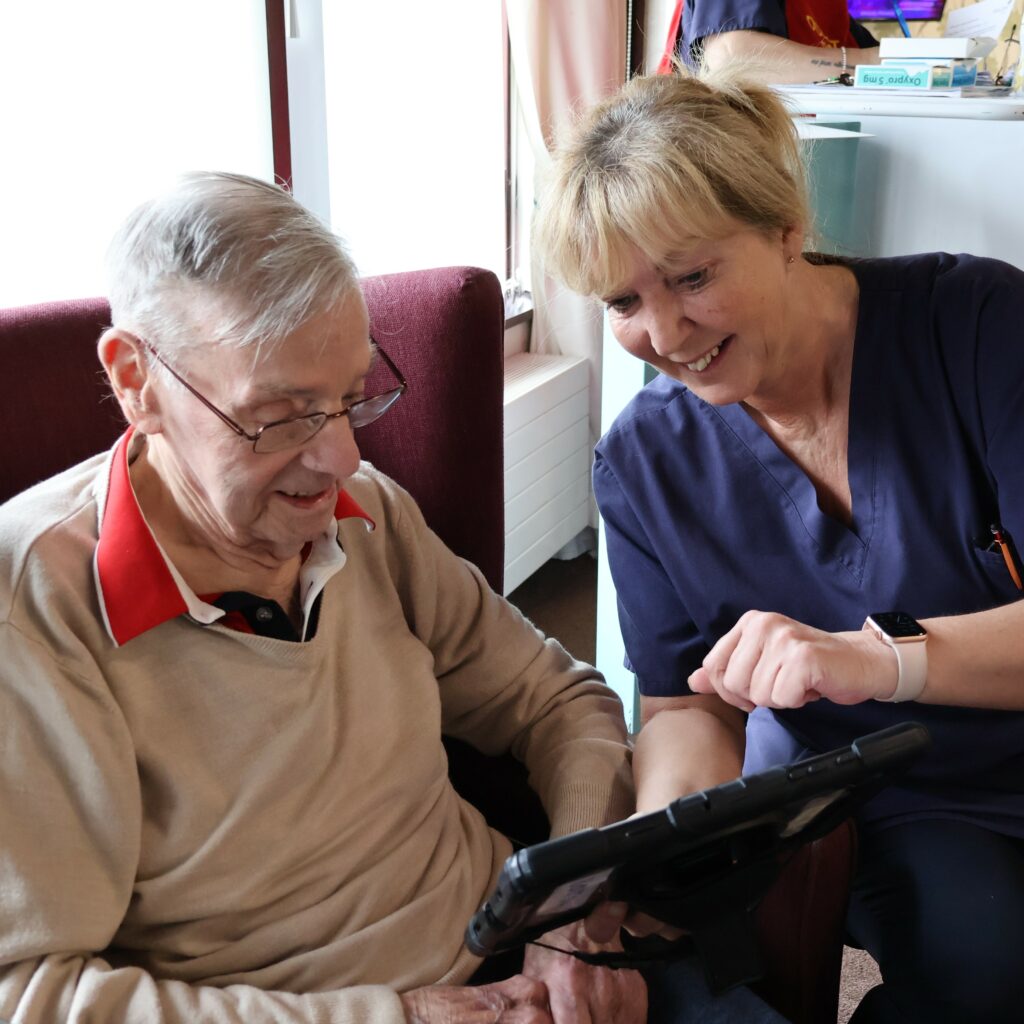
October 8th 2024
Delivering high-quality, personalised care is the priority of every care provider. In a busy and demanding environment, streamlining processes with the right digital tools can make all the difference. We spoke with MioCare in Oldham recently to discuss their steps towards integrating Control Care Systems, a Digital Social Care Records (DSCR) system. From improving communication, to people they support entering their own notes, here’s how MioCare’s journey into digitalisation has enhanced both the care they provide and the experience of their staff.
The need for change
Prior to adopting a fully digital system, MioCare relied heavily on paper-based processes and manual data entry; methods which could be cumbersome and prone to errors. Sandra Healy, the organisation’s Systems Lead states:
“The diversity of services we provide meant we needed something that could be adapted to suit someone being supported through one of our short-term services and then modified to suit someone in Supported Living, for example.”
Managing care plans and medication across multiple sites could be challenging. They knew they needed a system that could centralise those processes, improve accuracy, have the ability to support bespoke documents and, most importantly, free up more time to spend with the people they support as Robert, one of MioCare’s Senior Community Support Worker, shares.
“Although there was some apprehension when we initially switched to the digital system, the change has gone very well. The team has adapted quickly and we’re supporting each other as we learn.”
Rolling out a new digital system
After reviewing several options, they implemented Care Control Systems as the new digital care records system across all their Supported Living, LD Day Service, Shared Lives, Extra Care and Enablement services. The rollout process involved close collaboration with staff, allowing them to transition to the new platform. With the introduction of the electronic medication administration record (eMAR), they were able to see a reduction in medication errors – an early sign of success.
Enhancing care through technology
One of the most impactful changes was to the way they now create care plans. Enablement services, whether at home or on site, now involve the individual in real time, with consent being signed directly on tablets during reviews. This shift not only saves time but also fosters a more collaborative approach to care planning.
Additionally, care notes are now enriched with photographs that capture daily life, making documentation more meaningful. This is particularly appreciated by both staff and family members, as it provides a fuller picture of the care provided.
Darren, a Community Support Worker, explains:
“It’s so nice being able to update logs while being with the people we support, especially when they’re unsettled. It’s reassuring for them, and I can do my notes right there with them.”
Improved staff experience and communication
A team of digital champions was established to support the transition, and staff feedback shows that digital skills have improved across the board.
Communication has also become clearer, particularly for enablement services, where health teams can now contribute directly to the digital notes. As handovers are now typed, issues reading tricky handwriting have disappeared, and the ability to filter notes has made finding information much quicker.
Positive outcomes for people supported by MioCare, and their families
The move to digital has also allowed teams to explore new ways to involve people (and their families) in their own care. They recently completed a successful trial where a resident in Supported Living began entering their own care notes on a tablet – an initiative now being expanded with others.
Families have also responded positively to the change – one trial involved giving families access to care records, and the feedback has been overwhelmingly positive. One family member commented:
“I was reassured knowing that my mum’s diet and daily care were being looked after, even when I couldn’t visit every day. This has given us such peace of mind.”
Reducing costs and environmental impact
In addition to improving care quality and communication, the transition to digital has significantly reduced paper costs which has a positive environmental impact.
Community teams have benefited from less travel, as updates to care plans and risk assessments can now be made remotely, saving both time and fuel costs.
A bright future
Staff training records are now fully digitised, and MioCare are exploring integrating additional areas like rota management, health and safety checks, and medication audits.
Jo, an Assessment and Reviewing Officer and MioCare Digital Champion, sums it up:
“The rollout of the system has had its teething problems, but it’s been a great experience. We’re excited to see what more we can achieve.”